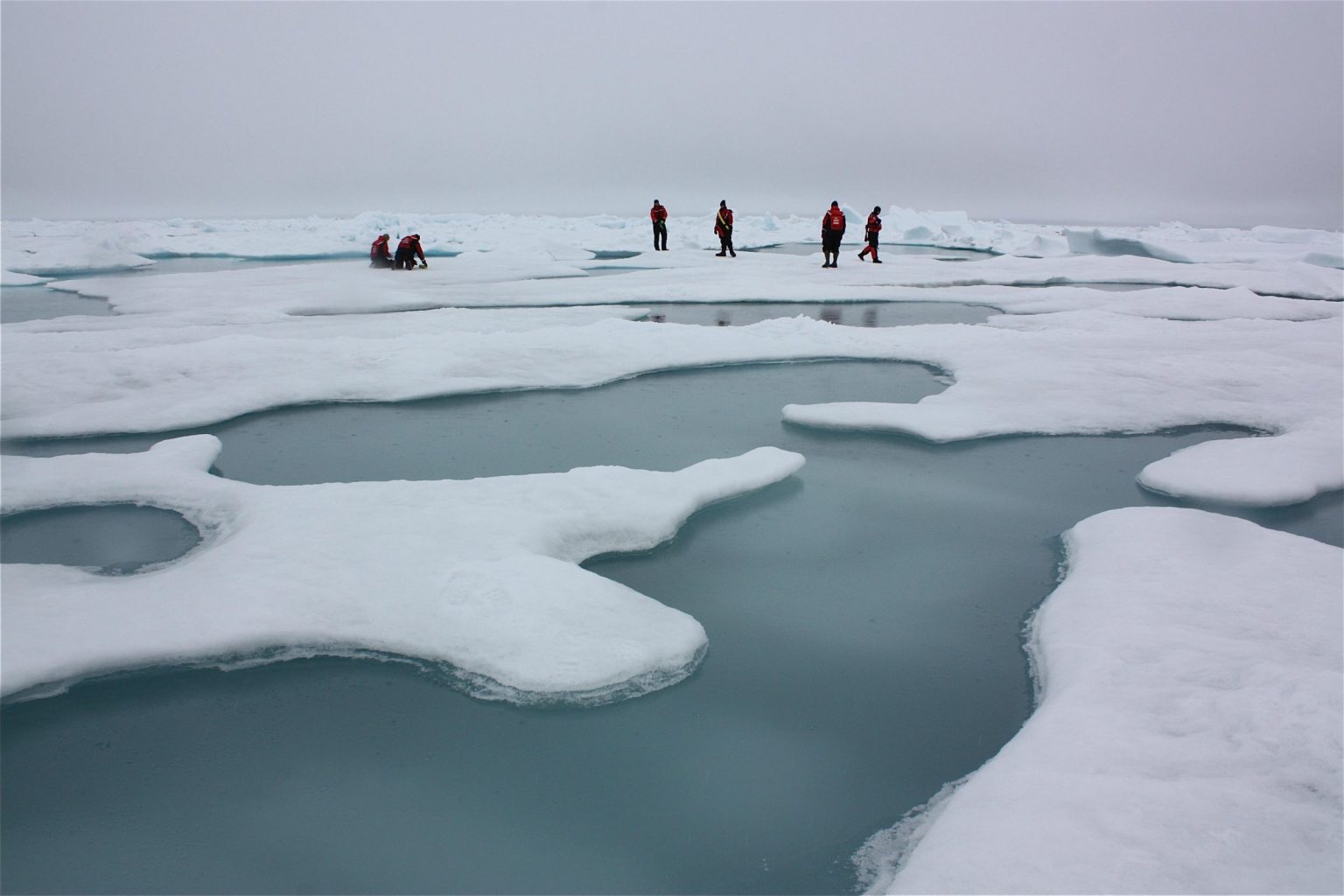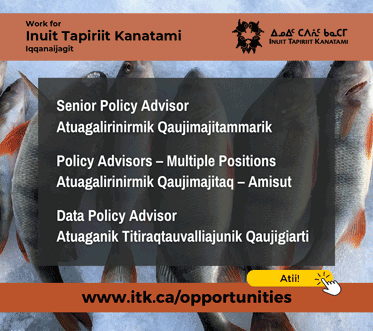New research program hopes to shed light on climate change in Inuit Nunangat
13 projects to receive funding as part of the Canada-Inuit Nunangat-United Kingdom Arctic Research Program
The Canada-Inuit Nunangat-United Kingdom (CINUK) Arctic Research Program includes 13 projects that will explore the environmental, social, economic, cultural, engineering and infrastructure impacts of climate change in Inuit Nunangat. (File photo)
Researchers hope to learn more about how climate change impacts the Canadian Arctic through the launch of a new program.
Thirteen projects will use $18.2 million to explore how the phenomenon is causing environmental, social, economic, cultural, engineering and infrastructure challenges across Inuit Nunangat.
They are part of the Canada-Inuit Nunangat-United Kingdom (CINUK) Arctic Research Program and are funded by Inuit Tapiriit Kanatami, United Kingdom Research and Innovation (UKRI), POLAR Knowledge Canada, the National Research Council of Canada (NRC), Parks Canada Agency, and Fonds de recherche du Québec.
One of those projects, called Carving out Climate Testimony: Inuit Youth, Wellness & Environmental Stewardship will see researchers at the University of Saskatchewan and the University of Newcastle work with youth in Tuktoyaktuk, Kuujjuaq, Makkovik and Rankin Inlet.
The project will look at a two-fold question: how does climate change impact Inuit youth and what are the resilience factors that enhance mental health and well-being?
Another project funded by the initiative aims to generate knowledge about the risks associated with climate change-induced growth in Arctic shipping across Inuit Nunangat.
With researchers from the University of Ottawa and the British Antarctic Survey, the Inuit Qaujisarnirmut Pilirijjutit on Arctic Shipping Risks in Inuit Nunangat project will identify and evaluate potential management strategies that support Inuit self-determined shipping and oceans governance.
The program is in place until 2025.




“The project will look at a two-fold question: how does climate change impact Inuit youth and what are the resilience factors that enhance mental health and well-being?”
This question is incoherent. And to think millions will be spent on this, unbelievable. It’s hard not to think that this is really just an elaborate way of redistributing money into the communities.
Call me old fashioned, but I remember when research started with a testable question. We used to call that a hypothesis. I’m not sure what this is supposed to be doing.
What is this research supposed to be doing?
.
Easy.
.
It is supposed to generate data that can be used to support a claim that Ottawa should be sending more money to Northern Inuit. That is the purpose of all research.
Last time I checked, that’s how science works.
What were you checking, the last time you checked?
Science asks questions that appear to make no sense. When the research is completed, they report on the findings. its called hypothesis.
“Science asks questions that appear to make no sense.”
I am going to disagree with you and say it is essential that a hypothesis be clear and understandable. It should also be testable, measurable, and should identify its predictions and variables.
Not all research starts with a hypothesis, mind you. Exploratory research, for example.
tell that to the scientists
I’m not sure if you remember the ‘National Inuit Research Strategy’ unveiled about 4 years ago, but I suspect that as funders of the project ITK had significant influence over the framing of the question.
For example, principles of the strategy were:
“researchers who apply for funding must show they’ve obtained consent from Inuit to do their work…” they would also “have to show their work is in line with priorities set by Inuit representative organizations…”
More here:
https://nunatsiaq.com/stories/article/65674the_national_inuit_research_strategy_five_things_you_need_to_know/
It almost had the ring of a ‘Soviet science’ or a ‘Soviet economics’ don’t you think? The point being that as an overarching organization directing the funding and the goals of the ‘research’ ITK has positioned itself to corrupt the organic process by which good science is done.
Call that my hypothesis, and I submit that the completely incoherent “two-pronged question” above is evidence that this is exactly what has happened.
maybe send out a memo to the scientists then?
Oh, I am sure they know… that 18.2 million dollars though.
Unusually quick melt, the norm is freezing at night during this time of year, that was not happening in 2022.